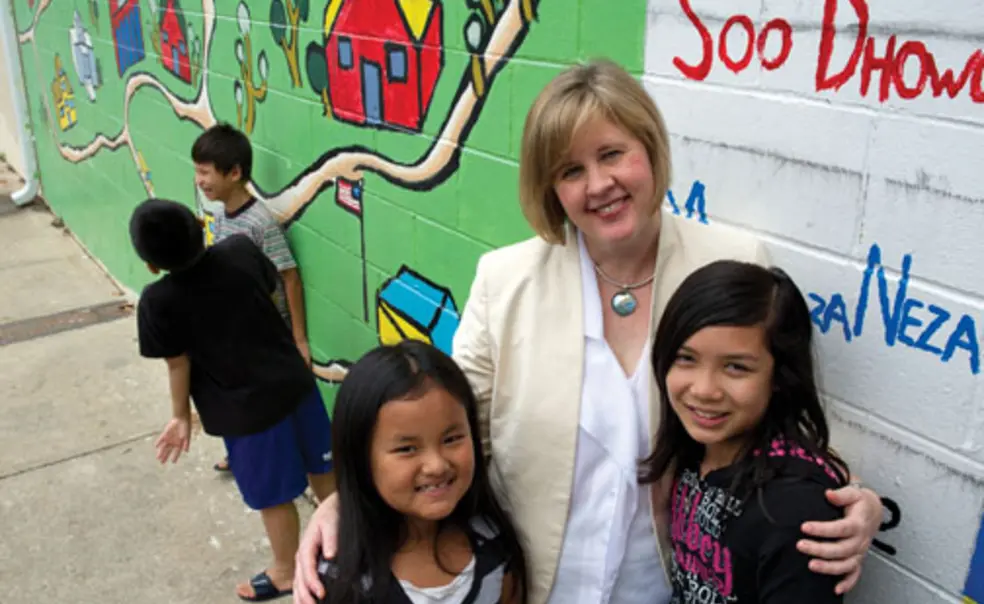Alumni Profile: Emily Pelton *92, head of refugee services
Résumé: Executive director, Refugee Family Services in Atlanta. Former director of foundation fundraising and policy analysis, CARE. Government-relations director, Case Western Reserve University. White House senior policy adviser for the President’s Office of Science and Technology Policy in the Clinton administration. Master’s degree in public affairs from the Woodrow Wilson School.
HELPING REFUGEES IN ATLANTA Emily Pelton *92 has been an adviser on science policy for the Clinton White House, lobbied for science funding for universities, raised funds for the humanitarian organization CARE, and consulted for nonprofits and NGOs. Her experience caught the attention of Refugee Family Services (RFS), which annually serves more than 2,000 refugees resettled in the Atlanta area, some just arrived and others who continue to utilize the organization over years. She joined the organization in 2010 as executive director because “it had a mission I could get behind” — helping refugees, primarily women and children, pursue educational and occupational goals in the United States after many bleak months or even years in refugee camps. These days they are likely to come from countries like Afghanistan, Bhutan, Somalia, Burma, and Iraq. “I’ve had some fancy jobs and some interesting jobs, but my first year working at this organization was the most intense I’d ever had,” says Pelton. She was managing a 50-person staff, fundraising, and dealing with unexpected challenges such as planning an impromptu clothing drive after refugee children showed up at the organization’s pre-K program in flip-flops during winter.
BUILDING LIVES RFS teaches skills and offers classes on topics that most Americans may take for granted, such as English literacy, personal finance, and the workings of public transportation. It also offers after-school, pre-K, and tutoring programs as well as services for domestic-violence victims. “In some of the cultures refugees are coming from, violence against women is an accepted norm,” Pelton explains. Refugees at RFS learn not only how to survive, but also how to thrive in their new environments.
DIRECT IMPACT Pelton juggles running daily operations with developing a vision for the future. She sometimes gets stressed, but says it’s worth it. “I’ve had a lot of wonderful jobs, but this one is different,” she says. “You really know that what you’re doing impacts people very directly.”












No responses yet